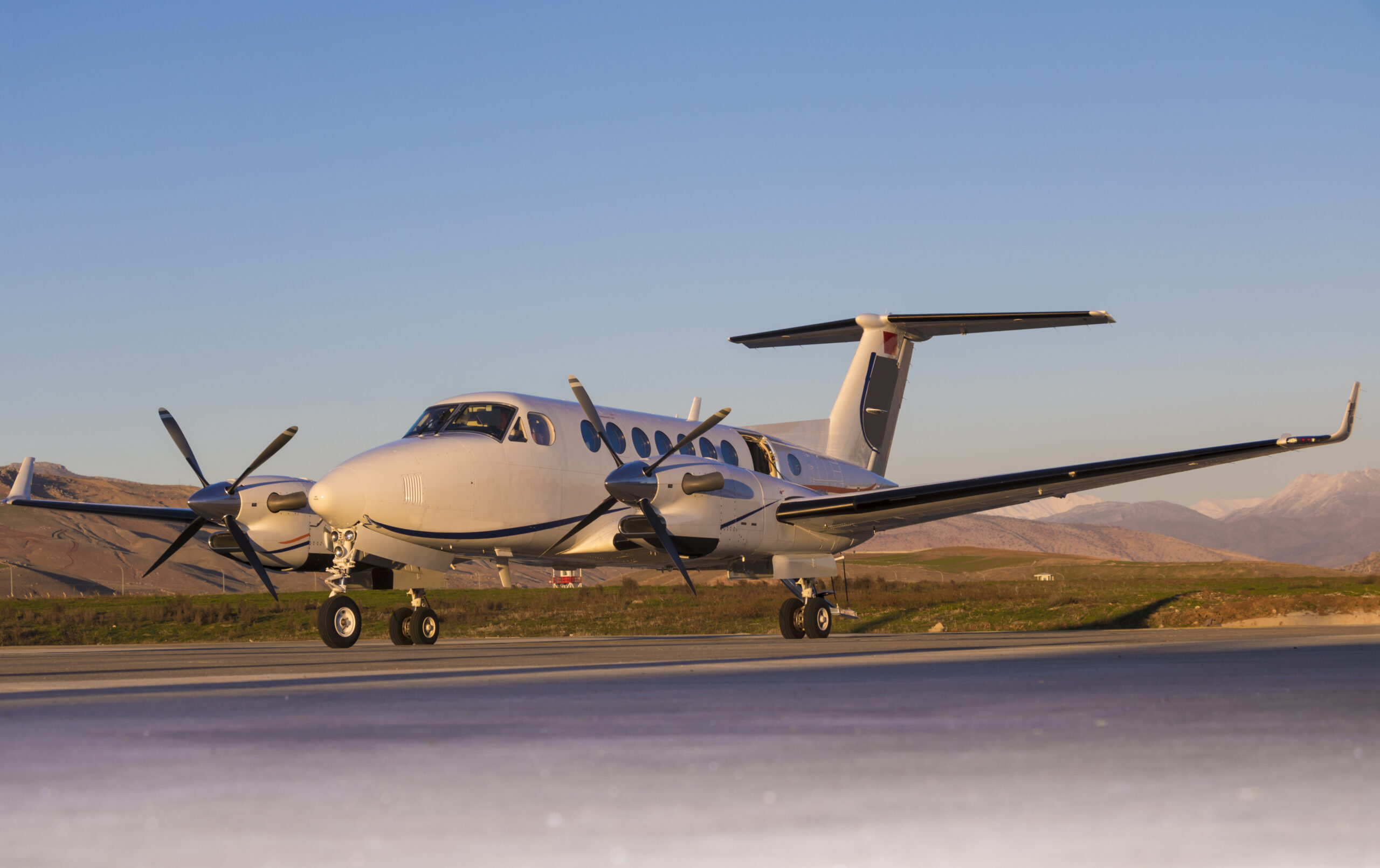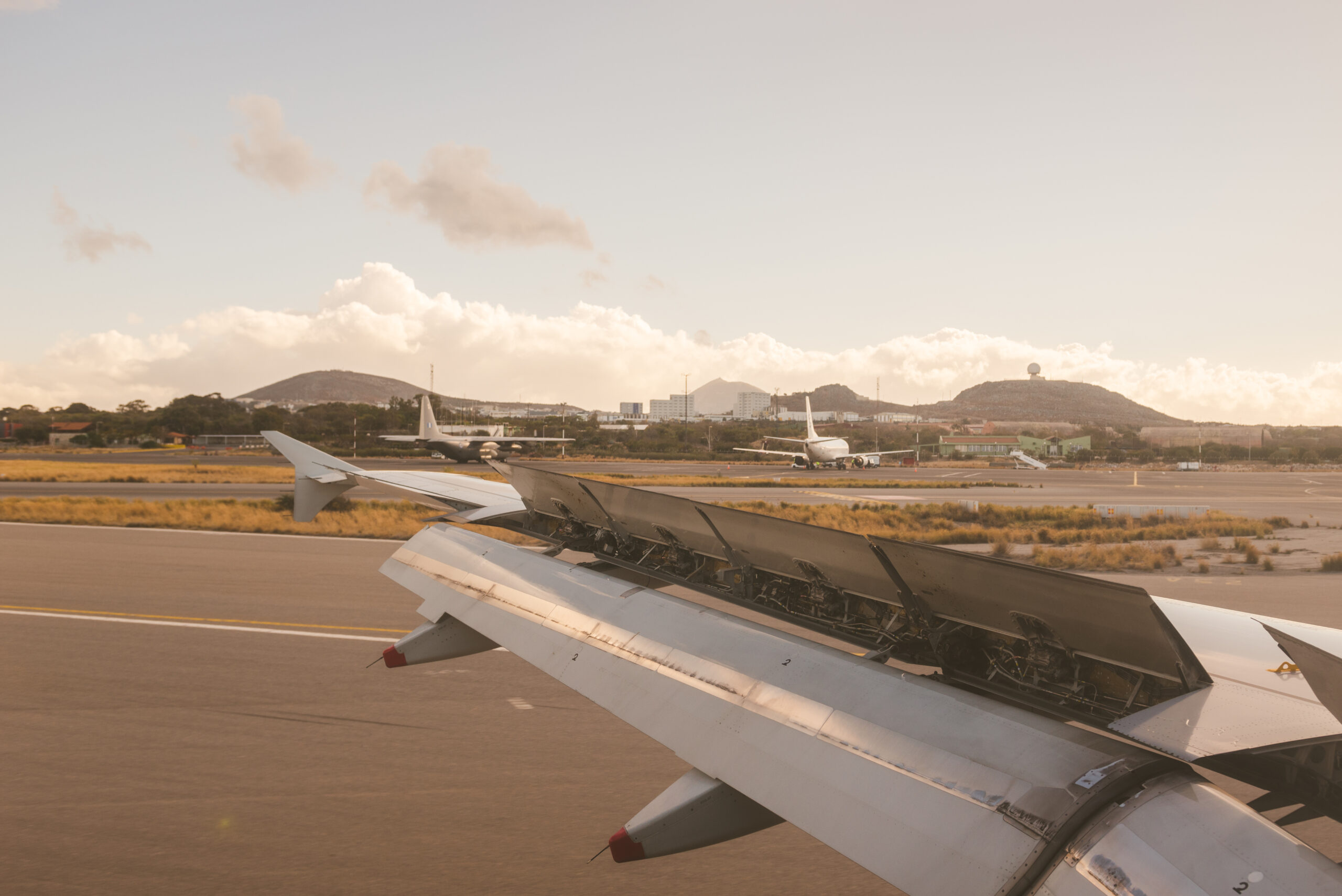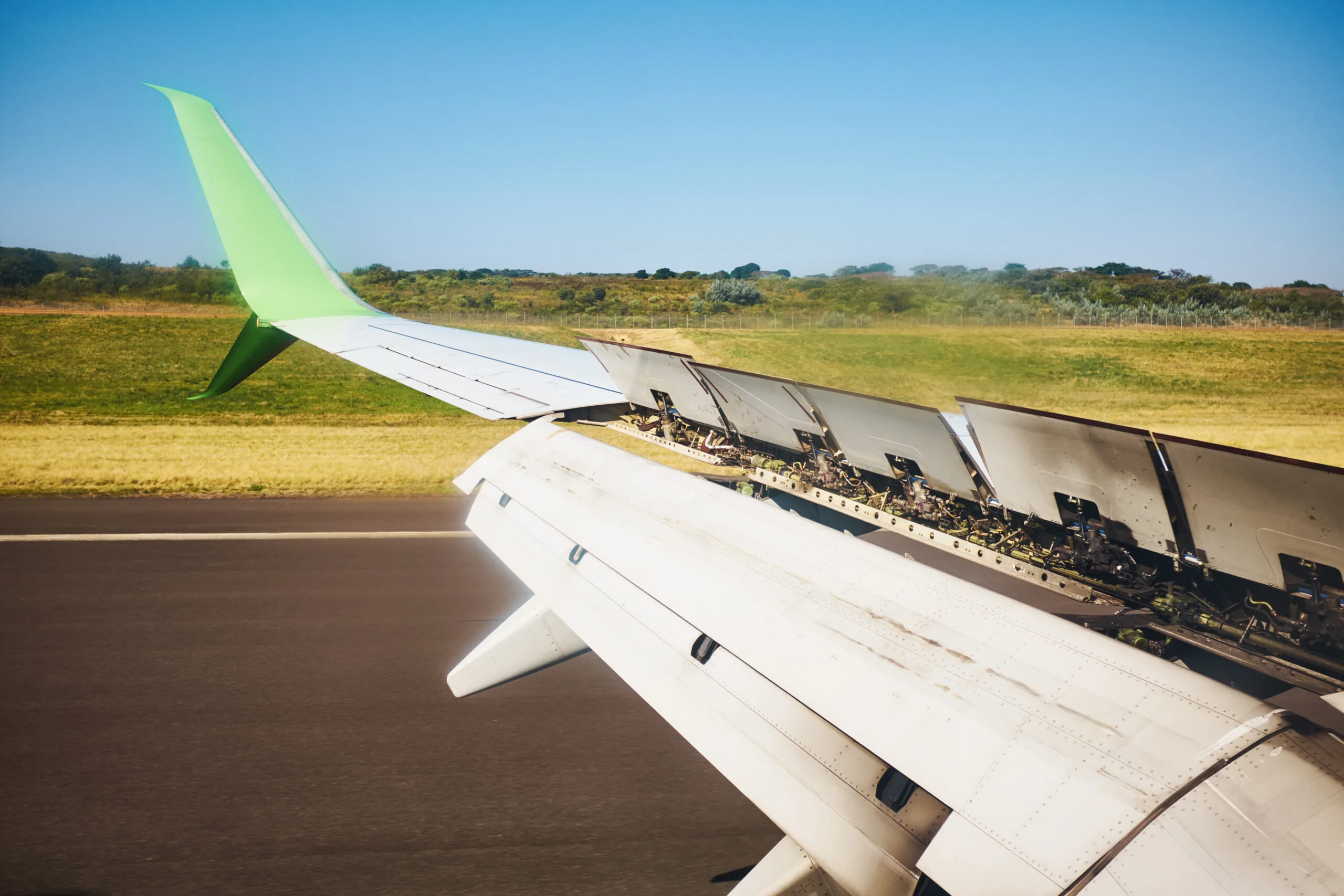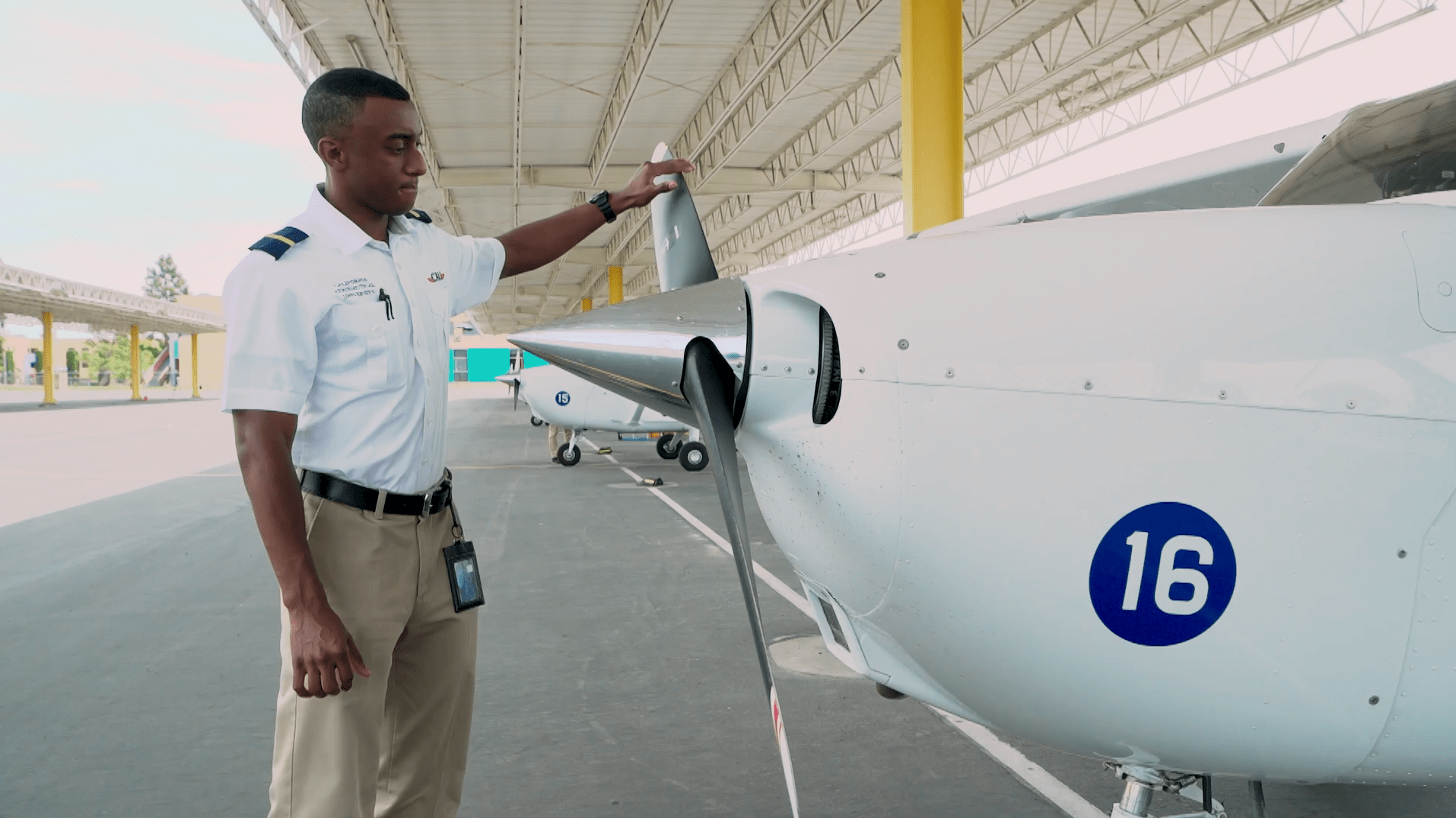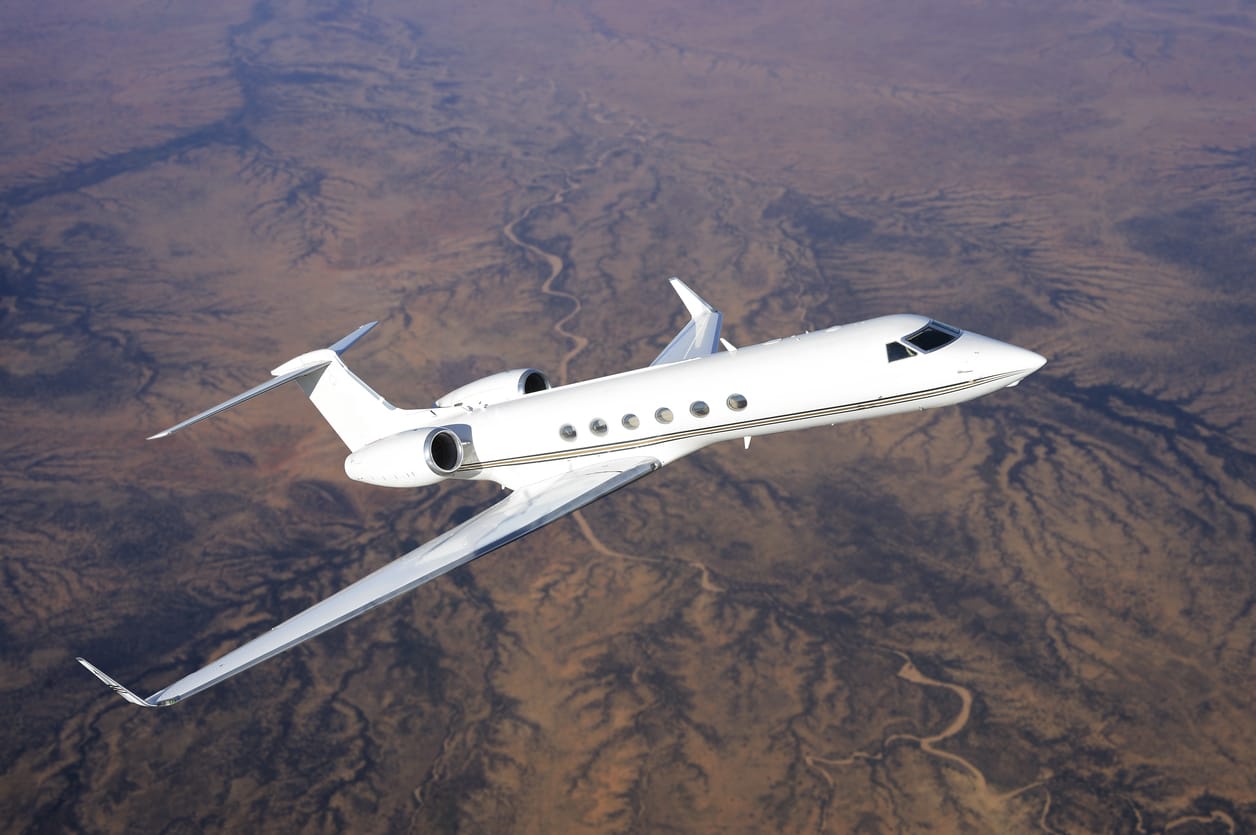Turboprops play a significant role in aviation, often used for regional or short-haul flights. The power behind these small to mid-sized aircraft may seem a bit basic, but it is actually quite complex and note-worthy.
Here we will take a closer look at turboprops, how they work, their advantages and disadvantages, and why they continuously catch the eye of aviation companies around the globe.
What is a Turboprop?
A turboprop propels an aircraft using a gas turbine engine and a visible propeller. Its power is generated by burning fuel and compressing the air within its compressor, combustion chamber, and turbine. When enough power is achieved, the propeller will begin to turn and allow the jet to move forward.
There are different types of propulsion systems used to power aircraft – and a turboprop is one of them. Having a general understanding of how it works is important since it can have a significant impact on a jet’s overall ability, including its performance and level of efficiency.
Advantages of Turboprop Aircraft
There are a few advantages of choosing turboprops in the aviation field – especially as it pertains to their efficiency. They are designed to use less fuel than jet engines, making them a more fuel-efficient and cost-effective solution. If speed is not imperative, then lower speeds and altitude can increase the efficiency of a turboprop aircraft.
Turboprops are highly versatile which proves itself as another advantage. Contrary to popular belief, turboprops are not only used in the smallest commuter aircraft but in larger cargo jets, too. This type of propulsion system allows the varied-size aircraft to be handled with greater control in certain conditions, as well as successfully utilize smaller runways.
Yet another advantage is that turboprops do not contribute to noise pollution. They are quieter than traditional jet engines, which is a huge advantage in highly populated areas. Their low level of emissions also provides a great benefit to the environment.
When it comes to the advantages of turboprops, there are plenty. Perhaps this is why so many aviation companies turn to turboprops for their regional and short-haul flights.
Disadvantages of Turboprop Aircraft
Regardless of the many advantages, turboprops do have a few shortcomings that keep them from being the most ideal option in certain situations. For instance, they tend to travel at lower speeds. They do very well for short distances, but long-haul flights on a turboprop would not be very time-efficient at all.
Turboprops are complex – and this can be another disadvantage. They require a special set of skills and knowledge in order to keep them properly maintained. They also tend to require more regular maintenance than other types of aircraft propulsion systems. As a result, increased operating costs and additional downtime for maintenance and repairs should be expected.
Weather plays a large role with all types of aircraft. While most can manage all types of outdoor elements, that doesn’t mean there are no limitations. Turboprops can handle all kinds of weather – except when the conditions turn extreme. High winds and heavy rain can ground the aircraft for obvious safety reasons.
Always take these shortcomings and limitations into consideration with your needs and plans before selecting a turboprop. Doing so will lower the risk of any unnecessary challenges. Of course, don’t overlook all of the advantages of turboprops in the process.
Aviation’s Renewed Interest in Turboprops
For quite a while, turboprops and their propulsion system were viewed as outdated with a greater focus being placed on newer options. However, there has recently been a renewed interest in turboprops for a few different reasons.
It is no secret that the aviation industry always leaves behind a huge carbon footprint. To reduce the amount of harmful pollutants jets emit, there has been a strong focus on sustainability throughout the entire aviation industry. Turboprops tend to be a part of that plan. They are highly fuel-efficient with a much lower level of emissions than traditional jet engines. For those serious about making a difference, turboprops have become the go-to.
While they may be grounded in extreme conditions as discussed above, turboprops can still fare well through many different types of weather. They are equipped to handle it and can even steady themselves better in turbulent weather.
It is important to remember that even though turboprops hold their own in efficiency, sustainability, and versatility, they still have some limitations to consider.
Comparing Turboprops with Other Jet Engines
The three most common types of aircraft propulsion systems you will encounter include turboprops, jet engines, and piston engines. Here is a short comparison of what sets turboprops apart from the others.
Remember, a turboprop uses a gas turbine engine that is used to turn a propeller to create a thrust. This allows the jet to move forward. This is much different than other engine types. For example, a jet engine creates its thrust with a high level of exhaust. Piston engines, on the other hand, have power that goes to their propellers. Their thrust is created with the pressure between the front and back of the propeller.
When it comes to efficiency, both turboprops and piston engines are much more fuel efficient than a jet engine. Piston engines do tend to have a lower power margin, especially when extra weight is added. This will greatly reduce their efficiency making turboprops the clear winner as it pertains to shorter flights.
Of all three types of aircraft propulsion systems, turboprops – by far- have a greater level of efficiency and lower emissions than jet engines and piston engines. This is important to consider with sustainability playing such a large role in the future of aviation.
In all, each system serves its purpose. Deciding which one is best will come down to specific needs and the situations surrounding them.
Learn More About Aircraft Propulsion Systems at CAU Today
Learn more about aviation and different aircraft propulsion systems at CAU today. Contact us today to learn about all of our aviation education opportunities.
Ready to soar in your aviation career?
Mr. Matthew A. Johnston has over 23 years of experience serving various roles in education and is currently serving as the President of California Aeronautical University. He maintains memberships and is a supporting participant with several aviation promoting and advocacy associations including University Aviation Association (UAA), Regional Airline Association (RAA), AOPA, NBAA, and EAA with the Young Eagles program. He is proud of his collaboration with airlines, aviation businesses and individual aviation professionals who are working with him to develop California Aeronautical University as a leader in educating aviation professionals.
